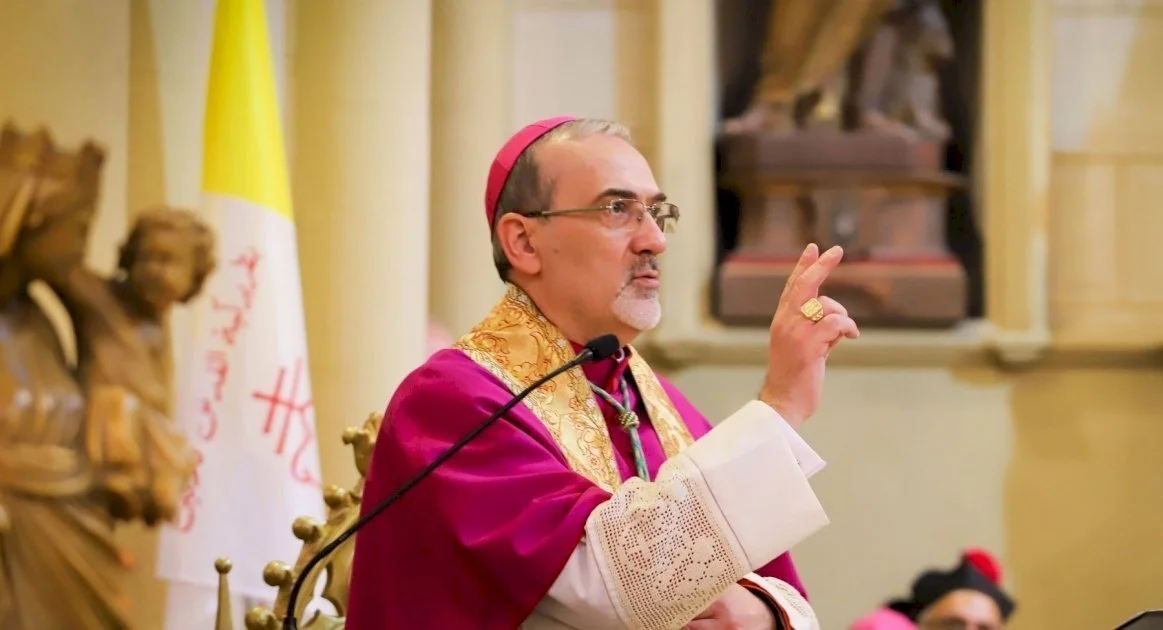Meditation Of His Beatitude Patriarch Cardinal Pierbattista Pizzaballa: The Most Holy Trinity B
Below you can find the Meditation of His Beatitude Patriarch Cardinal Pierbattista Pizzaballa, Latin Patriarch of Jerusalem, for the Feast of the Most Holy Trinity B, Sunday 26 May 2024.
Mt 28:16-20
On this feast of the Most Holy Trinity, we hear the last verses of Matthew's Gospel (Mt 28:16-20): it is the encounter of the Risen Lord with his disciples, the only encounter recounted by the evangelist. An encounter that coincides with a sending out on a mission, the mandate by which Jesus sends his disciples to carry everywhere the proclamation of the Kingdom.
Being a concluding passage, it is also a passage that summarizes so many central elements of this Gospel. We focus on some of them today.
We deduce the first element from an important verb, which occurs 57 times in the Gospel of Matthew, namely the verb to draw near (Mt 28:18): the disciples reach Galilee, where Jesus has given them an appointment through the words of the women (Mt 28:10), but it is Jesus who draws near to them, not vice versa.
Galilee is the place where Jesus had once before, drawn close to their lives, where he saw them and called them. And, after his resurrection, Jesus essentially continues to do this, to make himself close, to meet, to seek to establish a relationship.
By his life and by his death Jesus revealed this, he revealed the Face of a God who makes himself close. A God who does not remain distant from our lives, impassive, but has put himself at stake, has drawn near.
The Passover did not interrupt this journey of closeness. On the contrary, it made it possible forever and for all, to the point that God's very Name speaks of this closeness: in the Book of Exodus, God had revealed Himself to Moses by the Name of "I AM" (Ex 3:14). But here, at the end of Matthew's Gospel, Jesus completes this Name, reveals it in a definitive way, and says that this Name is "I am with you" (Mt 28:20). We have entered the very Name of God, we are part of Him, as if He could no longer exist without us.
And this is not for a few days, not for a period, but forever and every day, until the end of the world. To say, that there is no moment in history, be it the darkest and the most terrible, when He is not with us, does not make Himself close, to carry with us the burden of life, to open a path of hope.
Hence, this concluding passage says something very important about who God is, and how this God has revealed Himself in the person of the Lord Jesus.
But not only that. It also says something about the community of the disciples, and something more about all of humanity.
The community of disciples who reach Galilee, whom Jesus draws near, is very peculiar because it is a broken and wounded community.
There are no longer twelve disciples, but eleven (Mt 28:16), because one of them betrayed and walked away, and his absence reminds everyone that they have all in some way betrayed and left their Master alone in the moment of trial…
This Meditation was originally published on the website of the Latin Patriarchate of Jerusalem. Please click here to read the full text.


